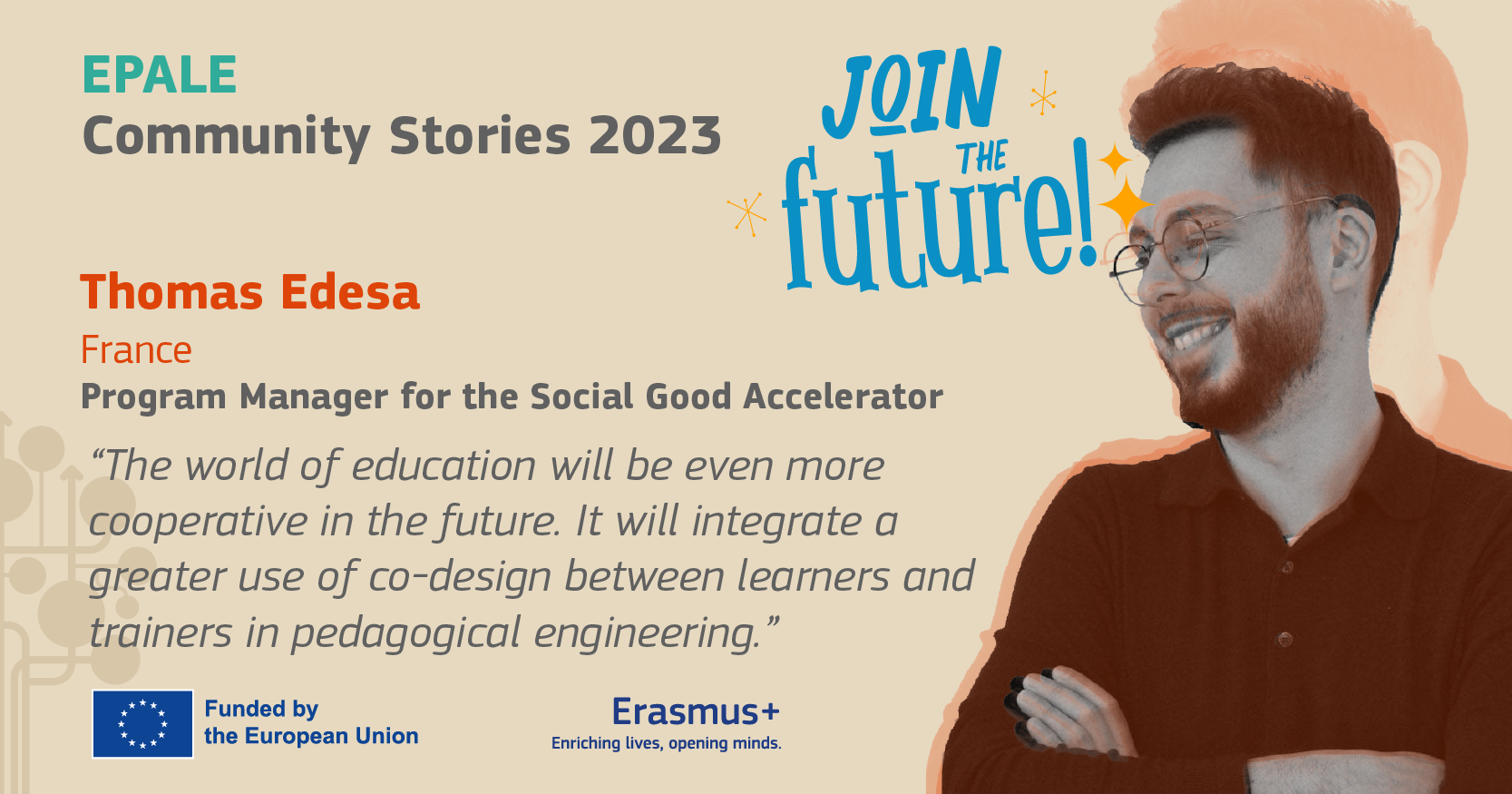Thomas Edesa: Digital technology and cooperation in the world of adult education

Short bio
I am 30 years old, I have a master's degree in Political Science and Complex Project Engineering from the University of Lille. I have been working for four years on general interest digital technology for companies, territories and social economy structures. I am now working as a Program Manager for the Social Good Accelerator in order to broaden my experience and skills at the European level.
My story
Digital technology in the world of adult education
The world of adult education has undergone a major upheaval since the recent health crisis. In order to meet this new demand, we have had to quickly modify our methods in order to digitalise part of our teaching and work on our professional digital skills. I experienced this major transition at a time when I was in charge of training business leaders. This made me realise how important digital skills are in the training sector, but also for company managers and their employees.
Improving the skills of business leaders has been a common theme throughout my career. I am convinced that the digital transition of our societies must involve a better appropriation of digital resources by economic structures.
Therefore, we must collectively define essential frameworks of digital skills that include small economic structures more extensively in this transition and make digital technology an opportunity for all.
First and foremost, working on a digital skills framework for economic structures requires understanding the needs of these structures (invoicing, creation of online spaces, paperless administrative declarations, etc.). Once these needs have been identified, we must then realise that an increase in skills can only be gradual and that it must be carried out by actors in the field who are trusted by this particular audience. These actors in the field (trainers, assistants, counsellors) form the core of my commitment. I am convinced that increasing the digital skills of these actors will allow us to transfer digital skills to all our final targets.
More cooperative adult education
The world of education will be even more cooperative in the future. It will integrate a greater use of co-design between learners and trainers in pedagogical engineering. The aim here is to replace the top-down trainer/learner approach, and to envisage that, thanks to existing and future digital tools, we can arrive at a situation of more horizontal exchange between the various stakeholders in a training course.
Assessing the increase in skills and the positive feedback received are elements which will allow us to achieve this objective of pedagogical horizontality both today and in the future.
Cooperation must also take place at the level of educational structures. Creating interregional and European networks of adult education structures is one of the keys to success for digital transformation in the world of education. This cooperation involves an exchange of practices, the pooling of resources and thus ultimately the creation of shared pedagogical resources.
The idea that an educational structure can possess unique educational content is obsolete at a time when AI can easily offer a training programme on any subject in less than five minutes.
Adult education structures must integrate the fact that the added value of their work will come from their capacity to collectively test pedagogical formats, to improve them through user feedback and to disseminate their content to other structures in order to form a real network of trainers capable of adding genuine value.
The world of education is undergoing profound transformation both in its organisation and methods. Digital technology in all its aspects will challenge our vision of adult learning. Everything is moving faster; we must therefore take action and organise ourselves collectively at a European level to meet the challenges ahead.
"My" skills for the future?





